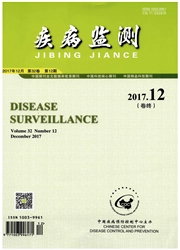

 中文摘要:
中文摘要:
细菌耐药问题严重地威胁着人类健康和公共卫生安全,也给临床、实验室检测、监测细菌耐药性工作带来严峻挑战。基于抗菌药物敏感性试验和聚合酶链式反应技术的细菌耐药性检测方法是目前最常用的方法,随着基因芯片技术、全基因组测序技术、微流控技术等新兴技术的推广,细菌耐药性检测方法得到进一步优化,向着更高通量、更快速、更精准的方向发展,为临床抗感染诊疗、细菌耐药性检测和监测提供新思路。现就各种细菌耐药性检测方法进行简要概述,对比各种方法的检测性能,为不同条件下细菌耐药性检测方法的选择提供参考依据。
 英文摘要:
英文摘要:
The growing bacterial drug resistance has become a serious public health problem and a big challenge to clinical diagnosis,laboratory test and bacterial drug resistance surveillance. Antimicrobial susceptibility test and polymerase chain reaction are the most common techniques used in bacterial drug resistance test. With the spread of newhigh techniques,such as gene chip technique,whole-genome sequencing,micro-fluidics technique and others,the performance of bacterial drug resistance testing has been greatly improved to become higher throughput,more rapid and more accurate. The newtechniques would facilitate the clinical diagnosis and treatment,bacterial drug resistance test and surveillance. This paper summarizes the characteristics of different bacterial drug resistance testing techniques for the application under different conditions.
 同期刊论文项目
同期刊论文项目
 同项目期刊论文
同项目期刊论文
 期刊信息
期刊信息
